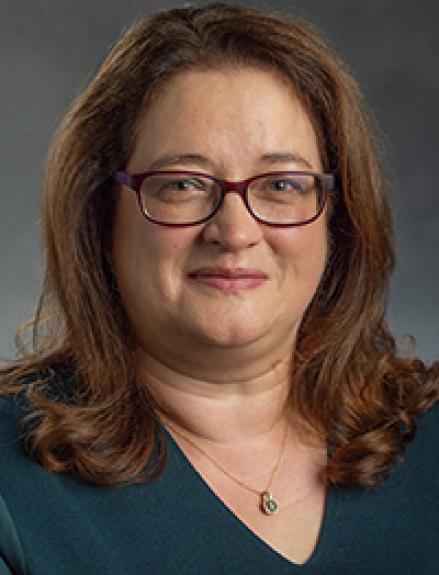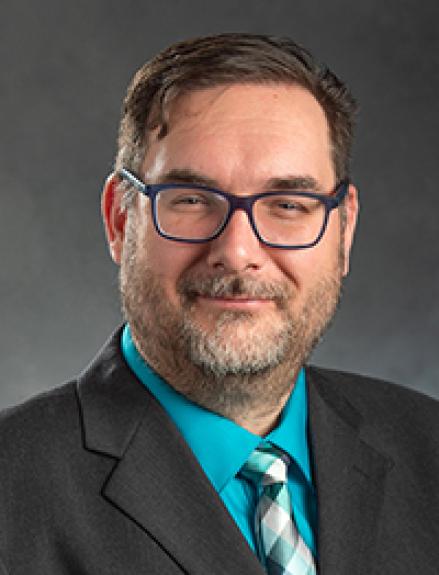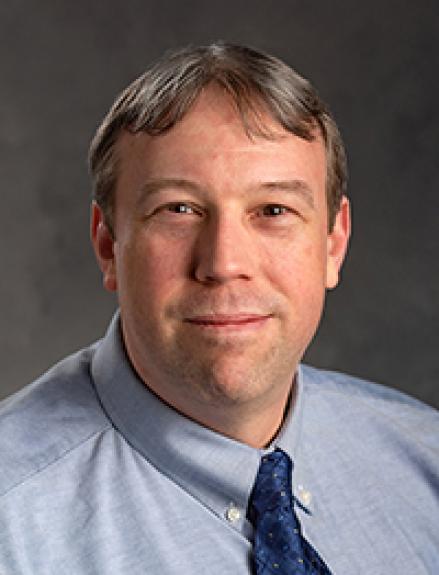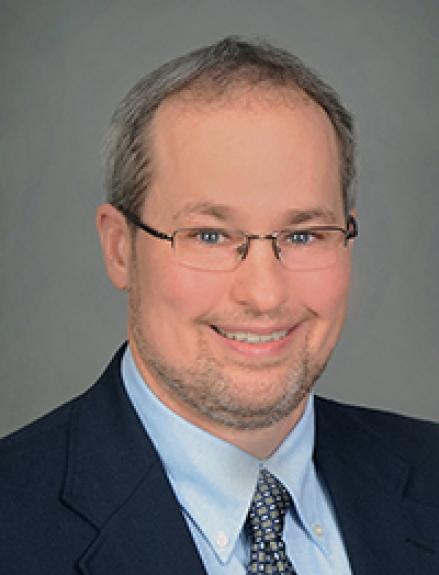Diane Doberneck
Office for Public Engagement and Scholarship, University Outreach and Engagement, Office of the Provost
Diane Doberneck has earned a national and international reputation for her scholarly contributions to innovative curriculum, experiential learning and community engagement.
Early in her career, in collaboration with students, academic staff and faculty, she developed a new approach to undergraduate education in the College of Agriculture and Natural Resource’s Bailey Scholars Program. Doberneck shifted it from teacher-centered to learner-centered, giving students greater agency and greater responsibility.
Under this new paradigm, students were expected to take responsibility for their own learning, bridge in and out of their classroom experiences, focus on well-roundedness and build leadership skills.
In collaboration with an Irish nonprofit, Doberneck developed the Community Engagement in Rural Ireland study abroad program, which partners undergraduates with Irish leaders to complete community projects to improve the quality of life in rural Ireland.
Doberneck mentored more than 50 students on these projects, including the establishment of parks and walking trails, childcare buildings and local heritage walking guides, all of which continue to have positive effects today.
Graduates of the Bailey Scholars and Irish study abroad programs have gone on to hold important leadership positions statewide and beyond.
Doberneck is currently the director for faculty and professional development in the Office for Public Engagement and Scholarship, where her commitment to innovative education has shifted from undergraduate to graduate education.
For 11 years, she has led the Graduate Certification in Community Engagement, providing students with opportunities to learn, practice and reflect on how to use their disciplinary expertise to make a difference locally, regionally and internationally.
A graduate student describes Doberneck as “the most down-to-earth scholar I’ve ever encountered. Not only does she care about the well being, knowledge and sustainability of communities, she cares equally about educating the next generation of community-engaged practitioners.”
Doberneck leads professional development for faculty, academic staff and community partners. Her talent in teaching and designing innovative curricula draws scholars from MSU’s campus and beyond to workshops, retreats and weeklong institutes.
She is sought out nationally and internationally as a facilitator, consultant and keynote speaker, with recent invitations to Ireland, Saudi Arabia and Ghana.
For her passion for community engagement and her dedication to preparing others to engage with communities in scholarly, reciprocal and ethical ways, Diane Doberneck is most deserving of the Michigan State University Distinguished Academic Specialist Award.
James Lucas
Office for Undergraduate Education Office of the Associate Provost
James Lucas, assistant dean of global education and curriculum in the Office of Undergraduate Education, works on issues related to curriculum administration, learning outcomes and curriculum assessment.
He regularly meets and consults with academic units and governance to help them connect curricula to learning goals, develop assessment methods to evidence this learning and create experiential opportunities to enhance undergraduate education.
Lucas focuses his research on high-impact practice design and assessment. He has dedicated his life to creating effective and dynamic practices to help students engage with the world, both in and outside the classroom, on and off campus.
He developed the Common Intellectual Experience, a university initiative focused on enhancing student success and achievement through particular themes to give students a sense of community and belonging while exploring diverse academic and cultural perspectives related to said theme.
A leader on several facets of MSU’s Freshman Seminar Abroad programs, Lucas has implemented standards on international course design to promote effective learning environments for students, particularly those experiencing their first time outside the United States.
His goal is to ensure optimal learning experiences for participating students. His detailed exploration of first-year student engagement experiences helped MSU develop its first-year seminar abroad program, which won the NASPA: Student Affairs Administrators in Higher Education’s National Best Practice Award for International Education, with Oakland University, Purdue and South Dakota State University replicating the program on their respective campuses.
A campus and national leader in global education, Lucas participated in the national writing team that developed the Association of American Colleges and Universities Global Learning VALUE Rubric and the international team on the Diversity, Equity and Inclusion Standards for the Forum on Education Abroad.
On campus, Lucas co-led a grant to create instructor field trips to enhance diversity and global learning within campus courses.
For his sustained commitment to a student-centered learning environment, willingness to engage students as a guide and mentor and his numerous educational innovations and varied contributions to Michigan State University, James Lucas richly deserves the Michigan State University Distinguished Academic Specialist Award.
Steven Pierce
Center for Statistical Training and Consulting, Office of Research and Innovation
Steven Pierce is the associate director of the Center for Statistical Training and Consulting, or CSTAT, a professional service and research unit at MSU that provides statistical services to faculty, staff and graduate students, along with workshops on a variety of statistical topics and software.
Under Pierce’s leadership, employees describe CSTAT as a wonderfully positive and inclusive environment and Pierce as selfless, ethical, compassionate, supportive and a natural leader — personally motivated, responsible and a good example.
Part of Pierce’s job involves training and mentoring the graduate students that CSTAT employs as consultants. His training is governed by good communication skills, excellent teaching and, above all, respect — all qualities he encourages his consultants to have with clients.
Pierce’s goal is to build his consultants’ capacity to apply statistical knowledge, principles, methods and software to real research studies. While technical training is key, Pierce believes the most important aspect of his mentoring is teaching students the communication skills essential to learning about their client’s work and what problem they want to address.
Positive feedback from CSTAT clients attests to the effectiveness of Pierce’s teaching and mentoring.
Pierce willingly provides graduate students he mentors help with their job searches, if requested. He discusses career planning, including what they are looking for in a position, helps them locate and review job postings and offers clues on how they can best present themselves for each one.
He discusses interview questions, preparation, strategies and provides feedback on cover letters and CVs. Moreover, he writes many, many letters of recommendation. He even teaches students how to negotiate salaries when they receive offers.
Pierce conducts research and has published 35 co-authored, peer-reviewed papers. His publications with Rebecca Campbell, MSU psychology professor, on untested rape kits have influenced public policy, while his paper with MSU entomologist, Deborah McCullough, has been cited 98 times. He has even collaborated on proposals resulting in
$4.6 million in external funding.
For his excellent leadership of CSTAT, focused and compassionate mentoring of graduate students, research collaborations with faculty and positive attitude towards all aspects of life, Steven Pierce is highly deserving of the Michigan State University Distinguished Academic Staff Award.
Brandon Schroeder
Michigan Sea Grant, MSU Extension College of Agriculture and Natural Resources
What do facilitating Great Lakes fisheries’ science, promoting coastal tourism, fostering community collaborations, searching for invasive species, tagging monarch butterflies and working closely with students and teachers have in common?
They are just part of a day’s work for Brandon Schroeder.
Schroeder is a Michigan State University senior extension educator with the Michigan Sea Grant College Program, serving northern Lake Huron coastal communities.
In addition to fisheries science, biodiversity conservation, coastal tourism and applying science-based knowledge to address Great Lakes issues, he is a passionate proponent of place-based education and Great Lakes literacy.
Schroeder has written extensively on Michigan’s lakes and fisheries, environment and coastal tourism. In addition to more than 50 co-authored articles, he has written and published more than 100 Michigan State University Extension online articles since 2012.
Through the Northeast Michigan Great Lakes Stewardship Initiative, which he helped launch, Schroeder works with youth who apply environmental science, technology, engineering and math to help conserve Lake Huron’s biodiversity, manage invasive species and more.
Since 2009, more than 26,000 students have engaged in these initiatives. In 2017, the Michigan Science Teachers Association honored him as its Informal Science Educator of the Year.
Schroeder provides program leadership for MSU Extension’s 4-H Great Lakes and Natural Resources Camp. In 2019, he was named Alcona County’s 4-H Alumni of the year and received the Michigan Association of Extension 4-H Youth Staff’s Colleague Award.
Other awards he has received include the Distinguished Service Award from the Great Lakes Sea Grant Network, the Huron Pines O.B. Eustis Environmental Award for Outstanding Service to Northeast Michigan and the Great Lakes Sea Grant Network Program Leaders Early Career Award.
Schroeder’s influence is widespread. He serves on the National Sea Grant Education Network Executive Committee and the Sea Grant Network’s Center for Great Lakes Literacy team, which fosters connections between scientists and educators throughout the Great Lakes Basin.
Through his annual Lake Huron fisheries education workshops, he facilitates relationships among Lake Huron researchers, managers and fishery stakeholders to help them better understand and respond to the lake’s ecological changes.
For the many ways in which he represents MSU with distinction, promotes education and encourages collaboration, Brandon Schroeder is a most worthy recipient of Michigan State University’s Distinguished Academic Staff Award.



